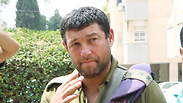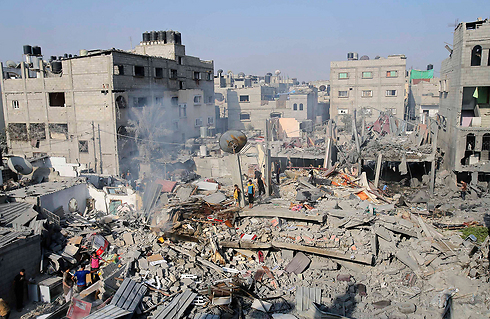
Hannibal Directive: Soldiers were following clear orders
Analysis: There is clearly a big gap between the way the procedure initiated when a soldier is kidnapped is perceived by the IDF's top command and its actual perception by the fighters on the ground.
But, as Operation Protective Edge made perfectly clear, the reality on the ground is different, the procedure is interpreted in a different manner – and the IDF will be required to incorporate the procedure in a way which will guarantee that it is understood by the lower ranks.
Weinstein's statement, as well as the administrative work conducted in the IDF and distributed in the army in the year prior to Protective Edge, appears clear and unequivocal. But on its way from the written procedures and written orders issued by the attorney general and chief of staff to the oral briefings given by regiment commander and company commander ranks, it changes and takes on a new form.
In fact, anyone who has heard the fighting forces being briefed on ahead of the battle knows that the orders they received are the complete opposite of the written order.

So it's no surprise that the junior officers and fighters were under the impression that they are allowed to do almost anything in order to thwart a kidnapping, and that even if they weren't explicitly told so – they are permitted to fire at the abductors even if the shelling has a high probability of leading to the captive's death.
And in order to establish these comments, it's enough to listen to what the Givati Brigade's ground commanders said during Protective Edge, that "a killed soldier is preferable to a kidnapped soldier."
Lieutenant-Colonel Eli Gino, commander of Givati's reconnaissance battalion, explained it in detail at the time: "We fired from fighter aircrafts at areas where we believed there were tunnel shafts. We knew that it would reduce the chance of finding Hadar (Lieutenant Hadar Goldin, who was kidnapped by Hamas) alive, but it was the best way to deal with it. In such a situation, you must choose the least worst option. The bottom line is that they don't have him, and the cell was likely killed."
It's clear, therefore, that there is a big gap between the Hannibal Directive as it perceived by the top command and the practical perception of the fighters on the front.
Now, ahead of the chief military advocate general's decision on whether to start legal proceedings against senior commanders in the Givati Brigade over the killing of dozens of Palestinian civilians in Rafah, it's important to present this gap.
Because until the Hannibal Directive is fully and properly incorporated in the army, one cannot accuse the soldiers, who were following clear orders they received from their commanders.










